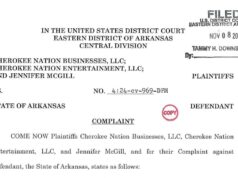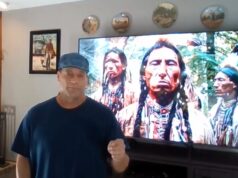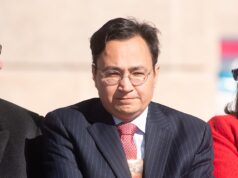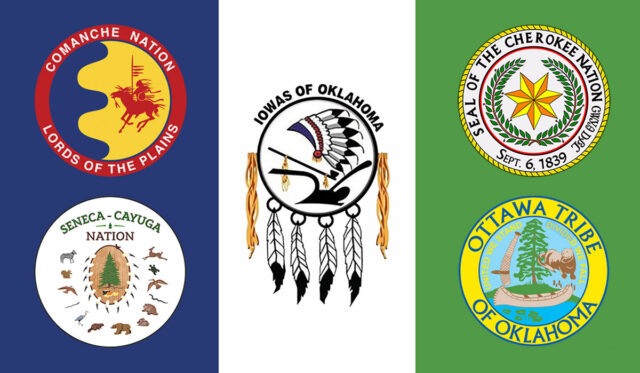
Across Oklahoma, tribal governments are holding their 2024 election cycles, with the Cheyenne and Arapaho Tribes and the Peoria Tribe and the Apache Tribe having already concluded their contests. Most recently, Forrest Tahdooahnippah was elected chairman of the Comanche Nation during a May 18 election that saw other positions head to a runoff.
Separately, the Ottawa Tribe wrapped up its regularly scheduled elections May 4, while the Kiowa Tribe held its primary election that day. Kiowa citizens are set to vote again June 1 on whether to approve the annual budget, but two constitutional amendments previously set for a vote were removed them from the ballot by the Kiowa Election Commission.
Meanwhile, the Iowa Tribe of Oklahoma and Seneca-Cayuga Nation also have scheduled June 1 elections. The Cherokee Nation has scheduled a special election June 15 on whether to hold a constitutional convention, but early signs hint at a low turnout.
Ottawa Tribe: Scott-Werner, Keah, Hollenbeck, Yeakley elected
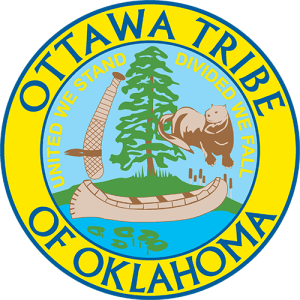
In an unusual move, election results posted for the Ottawa Tribe of Oklahoma announced winners of the May 4 contests but did not include vote totals.
Mikal Scott-Werner won the election for second chief, defeating Beryl “Gene” Epperson and Jonathan Jacobs. His election leaves the second councilman seat vacant, and that vacancy will be filled at the next meeting of the Ottawa Council, according to the Ottawa Constitution.
Kallista Keah unseated incumbent Brittany Bailey Long, who had served as secretary-treasurer of the Ottawa Tribe Business Committee since last August. In the race for first councilman, Cody Hollenbeck, an Army veteran who works in real estate in northeast Oklahoma, defeated Orion Clint, a longtime member of the Election Committee. In the Grievance Committee election, Rachel Marie Yeakley defeated Anastasia Stwyer and Lloyd Cox.
Follow @NonDocMedia on:
Facebook | X | Text or Email
Cherokee Nation election proposes constitutional convention
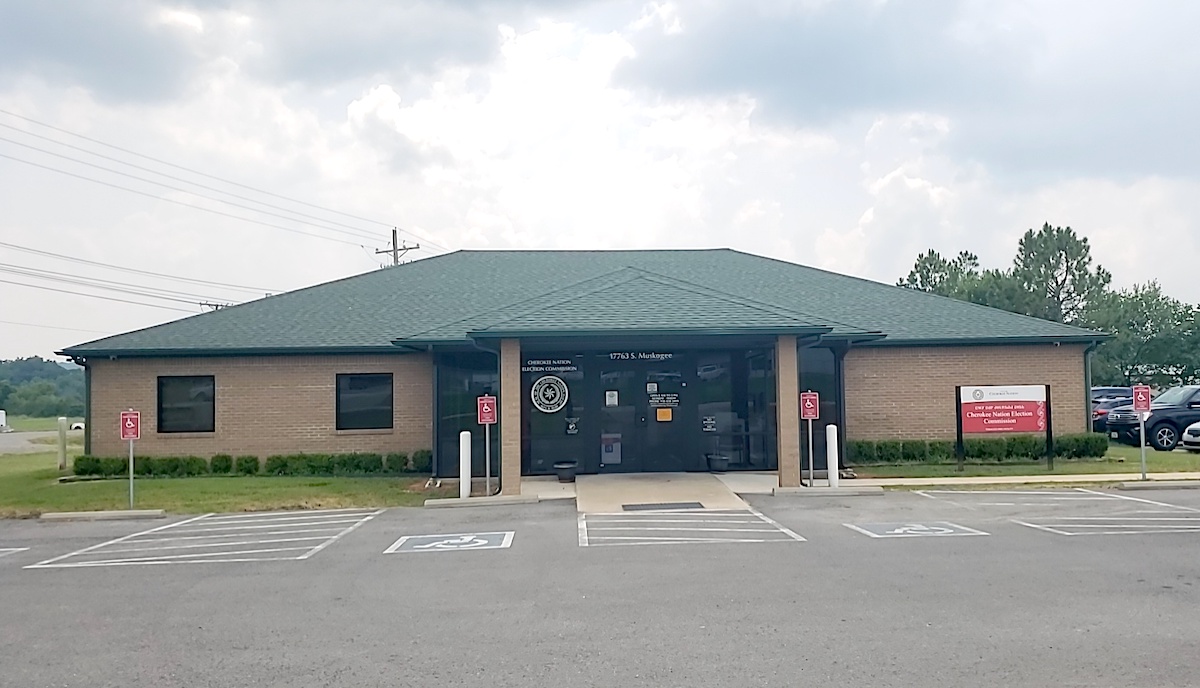
Cherokee Nation voters are being asked whether the tribe should call a constitutional convention to consider adjusting the nation’s foundational governing document, but after a 3 1/2-week window to request absentee ballots for the Cherokee Nation’s June 15 special election closed April 5, only 399 at-large members submitted absentee ballot requests, according to the Cherokee Phoenix. With 113 absentee requests for on-reservation citizens, the total absentee ballots requested were 512.
That number of absentee ballots is exceptionally low compared to years with a chief or Tribal Council election. Cherokee Nation elections director Connie Parnell told the Cherokee Phoenix that, during last year’s principal chief election, the Election Commission sent out more than 10,000 absentee ballots.
“Usually, it’s anywhere from 8,000 to 9,000. When it’s a midterm, say like what we’re going to have next year when it’s half the council, the numbers will drop to probably around 5,000 to 6,000 absentees,” Parnell said. “We won’t get them all back. (This year) It’ll probably be under 500 (ballots) back.”
The Cherokee Nation Tribal Council set the June 15 election earlier this year, although Principal Chief Chuck Hoskin Jr. and 16 council members are asking citizens to vote against holding a new constitutional convention. The tribe’s current constitution says a question on whether to call a new convention must be submitted to voters at least once every 20 years.
The Cherokee Nation has 77,591 registered voters, with about 34,300 of those considered at-large. The 399 absentee ballot requests represent about 1.2 percent of the at-large electorate.
The low absentee ballot request rate likely signals a low at-large turnout in the special election. If an at-large voter did not request an absentee ballot by the April 5 deadline, they can still vote by traveling to Tahlequah during early voting on June 8, 11, 12 and 13 at the election commission between 7 a.m. and 7 p.m.
Comanche Nation elects Forrest Tahdooahnippah, Diana Doyebi-Sovo as chairman, vice-chairwoman
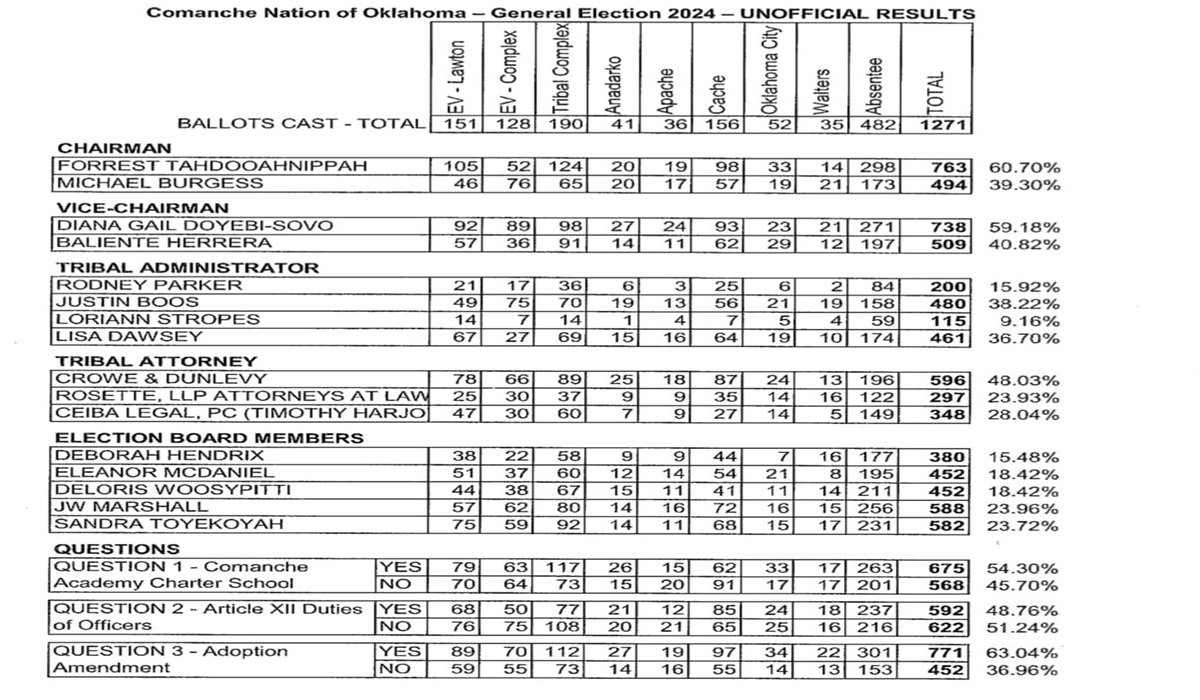
The Comanche Nation, headquartered in Lawton, voted on three tribal proposals, the annual budget and several elected offices May 18. Forest Tahdooahnippah was elected chairman, and Diana Gail Doyebi-Sovo will become vice-chairwoman after they are sworn into office Friday.
Meanwhile, the offices of tribal administrator and tribal attorney will be decided in a runoff election scheduled for June 14 and 15. The deadline to request absentee ballots for the runoff is May 31, and absentee ballots must be received at the Lawton Post Office by noon on June 15.
While all provisions of the annual budget passed alongside a proposal to increase funding for the Comanche Academy Charter School with tribal dollars and an adoption amendment, a proposed amendment to Article XII of the nation’s constitution failed after 51 percent of voters rejected it. Details of the amendments do not appear to be available online.
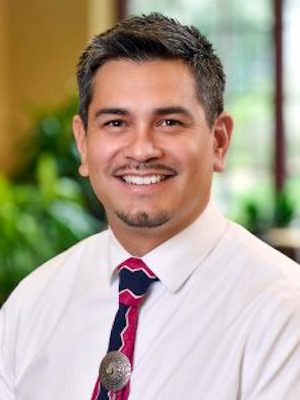
Tahdooahnippah won the election to succeed Mark Woommavovah for chairman of the Comanche Nation, netting 763 votes (61 percent) to Michael Burgess’ 494 votes (39 percent). Woommavovah did not run for reelection after being censured by the Comanche Nation Business Committee for endorsing the construction of the controversial Westwin Elements Cobalt Refinery, which has drawn concerns from tribal citizens about the environmental impact of rare-metal mining.
An attorney who serves as an assistant professor at the Mitchell Hamline School of Law in Minnesota, Tahdooahnippah said reforming the Comanche Nation’s business committee and constitution are among the issues he hopes to tackle during his term.
“Another thing that I am really hoping to do is protect our environment,” Tahdooahnippah said. “There’s been a few different environmental threats. There is the cobalt-nickel refinery that is under construction and the City of Lawton has been discharging municipal waste into one of the local creeks.”
Tahdooahnippah voiced support for improving tribal communication and access to information on the nation’s website — such as details about election proposals — and he expressed a need to diversify the Comanche Nation’s economy.
“[Another] thing I’m hoping to do is reform our sources of revenue,” Tahdooahnippah said. “In addition to gaming, having more federal funding, trying to take advantage of more federal opportunities (and) trying to do some more private fundraising for our culture activities (is important). And then just diversifying our businesses beyond gaming.”
In the race for vice-chairperson, Diana Gail Doyebi-Sovo garnered 738 votes (59 percent) while Baliente Herrera received 509 votes (41 percent).
The candidates for tribal administrator and tribal attorney failed to win a majority of support, triggering a runoff election for both races. The term of the Comanche Nation tribal administrator was increased from one year to three years after a constitutional amendment was approved in December. The nation’s tribal attorney is elected annually.
In the tribal administrator race, Justin Boos led with 480 votes (38 percent) and will advance to the runoff alongside Lisa Dawsey, who garnered 461 votes (37 percent). Rodney Park received 200 votes (16 percent) while Loriann Stropes received 115 votes (9 percent).
The Comanche Nation’s constitution allocates the hiring of the tribe’s attorney to the Comanche Tribal Council, which includes all members of the tribe over the age of 18. In practice, the nation has implemented this requirement through the nationwide election of its tribal attorney.
Owing to a quirk of the Comanche Nation’s election laws, candidates for tribal attorney do not have to be individual attorneys, and the ballot can include law firms. As a result, readers of the Comanche Nation News may have spotted advertisements (page 20) to reelect Crowe and Dunlevy as the nation’s tribal attorney.
Despite its incumbency status after ousting the firm of Dorsey & Whitney — where Tahdooahnippah previously worked — in 2023, Crowe and Dunlevy was narrowly forced into a runoff election this year after receiving 596 votes (48 percent). Timothy Harjo of Ceiba Legal, PC advanced to the runoff alongside Crowe and Dunlevy after receiving 348 votes (28 percent). Rosette, LLP Attorneys at Law were eliminated in the primary after receiving 297 votes (24 percent).
Three Iowa Tribe incumbents run for reelection
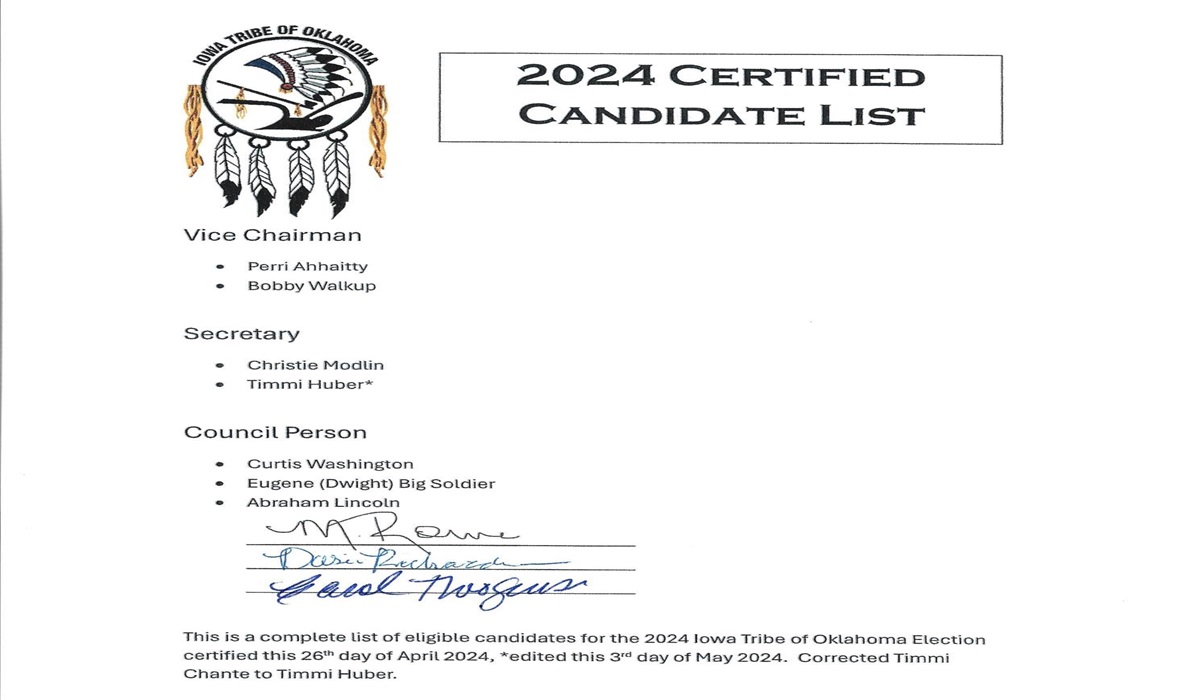
The Iowa Tribe of Oklahoma is set to elect three members of its Business Committee on June 1, with the tribe’s vice-chairman, secretary and councilperson all up for reelection this year.
In the race for vice-chairman, incumbent Perri Ahhaitty is running for reelection against Bobby Walkup, who previously served as the tribe’s chairman. Walkup supported efforts in the 2010s to expand the tribe’s gaming industry into online poker.
In the race for tribal secretary, incumbent Christie Modlin will face Timmi Huber. Huber is an employee of the Iowa Tribe of Oklahoma, according to his LinkedIn.
The race for one councilperson seat on the Business Committee drew three candidates, who all coincidently share a first or last name — or both — with a former U.S. president. Incumbent Curtis Washington is seeking another term against Eugene “Dwight” Big Soldier and Abraham Lincoln. Lincoln serves as the chairman of the Iowa Tribe Gaming Commission.
Seneca-Cayuga Chief Diebold seeks reelection, 3 races contested, 2 elected unopposed
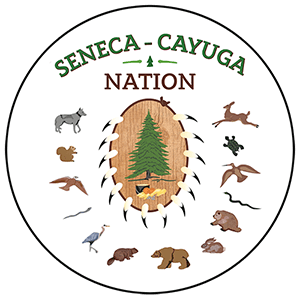
The Seneca-Cayuga Nation is governed by the Seneca-Cayuga General Council, consisting of all members of the tribe over 18, and a seven-member Business Committee. The committee includes a chief, second chief, secretary-treasurer and four councilpersons.
Members of the Business Committee serve four-year terms, with staggered elections every two years on the first Saturday of June. The nation also has an elected Grievance Committee.
Three Grievance Committee seats, the first and third councilperson seats and the office of chief are scheduled to be decided June 1. Two members of the Grievance Committee, Ryan Birdsong and Preston Baker, ran unopposed.
In competitive races, Chief Chalres Diebold is running for reelection against Sharon “Katie” Birdsong and John Wabaunsee. Birdsong previously served four years as second chief and six years as councilperson. Wabaunsee is an Army veteran and small business owner who previously worked for the C. R. Anthony Company.
In the first councilperson race, Cynthia Donohue-Bauer is running for reelection against Diana Baker and Terry Whitetree. Baker has worked for both the Shawnee Tribe and the Seneca-Cayuga Nation in executive positions related to childcare and child development. Whitetree is an Army veteran who also worked in the aviation industry in Tulsa.
Third Councilman Hoyit Bacon did not seek reelection, leaving an open seat contested by five candidates:
- Jason WhiteEagle, a former candidate for a seat on the Business Committee;
- Nicholas Arledge, a member of the Seneca-Cayuga Nation Tax Commission since 2021 and former slot supervisor at Grand Lake Casino;
- Cheryl Bushman, a manager at the Wyandotte Dollar General;
- Kathryn Schaefer, a former member of the business committee, Seneca-Cayuga Tobacco Company employee, and former manager of surveillance for Grand Lake Casino; and
- Dustin “Dusty” Logan, former employee at the Seneca-Cayuga tobacco factory and general manager of Grand Lake Casino.
In the one contested race for the nation’s Grievance Committee, David “Boo” Lane is facing Nina Short.
(Correction: This article was updated 10:55 a.m. Wednesday, May 22, to reflect new dates for the Comanche Nation runoff elections posted by Comanche Nation News on Facebook.)










